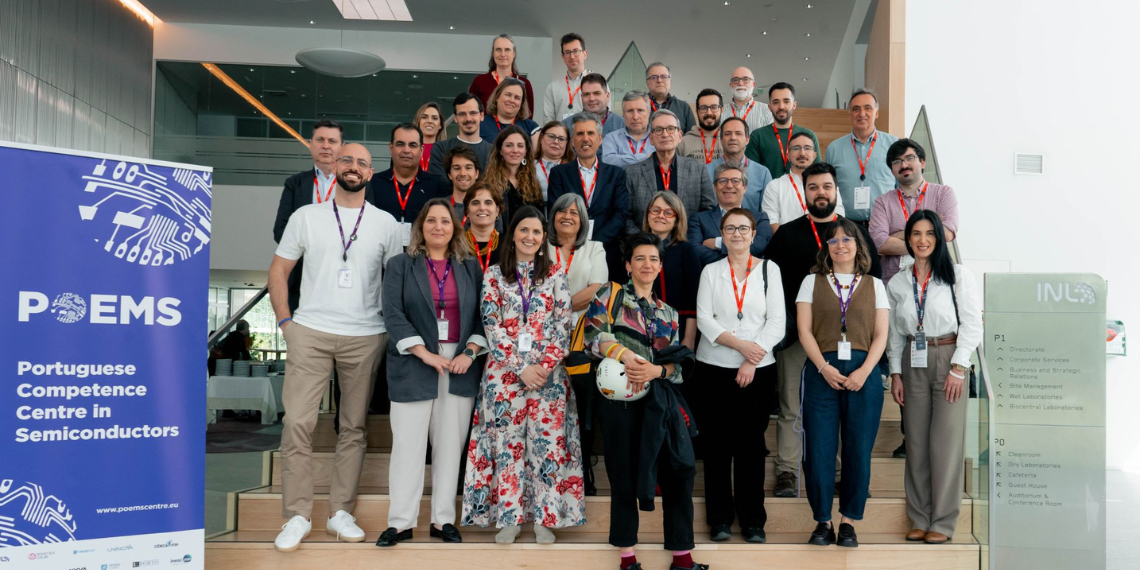Driven by the need – and in line with the European strategy – to improve the Portuguese semiconductor industry -, the Portuguese Competence Centre in Semiconductors (POEMS) was created. Officially launched in April, the initiative features INESC TEC and 15 other partners.
They are tiny devices we use everyday without even realising; but their size is inversely proportional to the importance they hold in the world we live today. Present in all electronic devices and used to store or process data, chips are the central component of mobile phones, computers, and even cars. Hence, many belive that any progress made towards improving and producing these devices represents an advantage – whether economic, political, or technological – for those who achieve it.
The core of semiconductors are chips: materials that already constitute an industry sector in which Portugal still holds only a minor presence, despite the technological growth recorded in recent years. Increasing research, development, and production capacity in the field are goals that established the strategic need behind POEMS, the Portuguese Competence Centre in Semiconductors – officially launched on April 8, with the involvement of INESC TEC and 15 other partners.
One of the main goals is to monitor the work carried out in industry and research, to frame it in the needs of the country and to boost the transfer of knowledge between academia and companies. In this sense, this endeavour foresees the creation of joint working groups to promote the collaboration of teachers, researchers and professionals, encourage the development of R&D projects and the transfer of knowledge and technology.
Assessing the needs of companies will be a priority, giving them an “active role in defining training courses to ensure that they meet current and future needs”, pointed out Luís Miguel Pinho, researcher at INESC TEC. The strategy of training and requalification of professionals – which will be specialised and adapted to technical levels of higher education – is, moreover, one of the most significant contributions of the institution, even assuming a coordinating role in this context. The “periodic assessment of training needs” will be the starting point of this process, which aims to “map the national panorama of training and education provision”.
In addition to the training aspect, the bridge that POEMS seeks to establish between industry and academia will be reinforced through consulting, mentoring and support for entrepreneurship. INESC TEC will be an active agent in this sense, contributing with skills from the fields of telecommunications and multimedia, photonics, human-centred computing and information science, and innovation, technology and entrepreneurship.
This opens the way for the easier use, by companies and professionals, of tools and technologies developed by other initiatives, like the pilot-lines or the Design Platform, in which Portugal also participates. “SMEs and start-ups will be allowed access to tools with lower costs, while fostering the commitment to promote open-source tools“, explained Luís Miguel Pinho. “The POEMS will play an important role in facilitating companies’ access to said initiatives.”
This endeavour also focuses on the liaison with similar European initiatives (with a network currently being established) to “create synergies and reduce double efforts“. “One of our goals is for the different centres to be as complementary as possible in terms of their areas, and they should collaborate with one another to make it easier for a company in one country to access stronger expertise in another”, he pointed out. The union should also bear fruit, through continuous collaboration with public entities, in the “definition of strategies and financing programmes“.
In addition to INESC TEC, POEMS also includes 15 other partners: the International Iberian Nanotechnology Laboratory (INL), University of Aveiro, Centre for Nanotechnology and Advanced Materials (CeNTI), Ciência Viva, UNINOVA, INESC Microsystems and Nanotechnologies, University of Porto, PQI – Portuguese Quantum Institute, University of Minho, INESC-ID, Instituto Superior Técnico, VORTEX-CoLab, Institute of Telecommunications, Universidade Nova de Lisboa, and the University of Coimbra.
The researcher mentioned in this news piece is associated with INESC TEC and IPP-ISEP.


 News, current topics, curiosities and so much more about INESC TEC and its community!
News, current topics, curiosities and so much more about INESC TEC and its community!